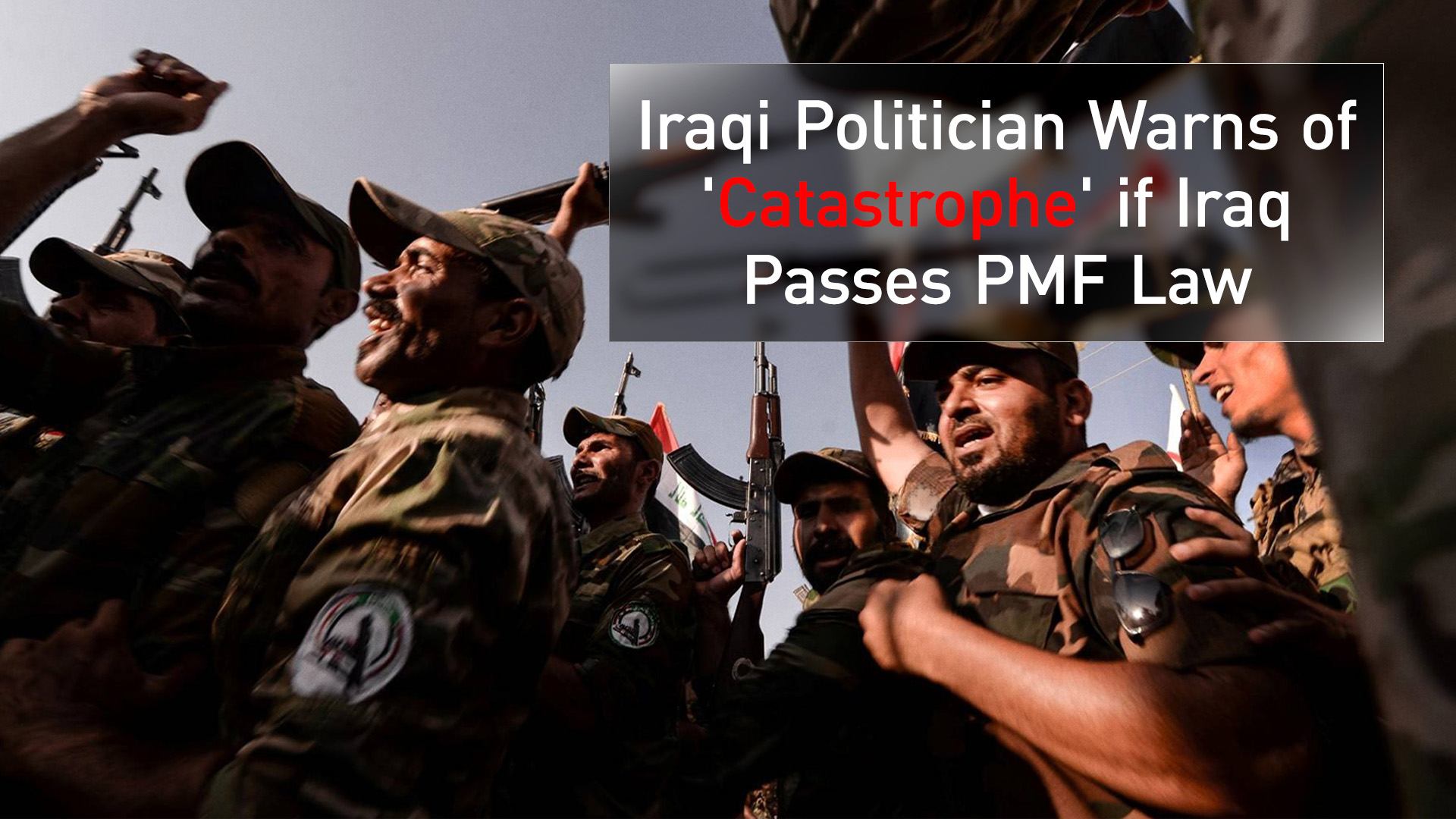U.S. Sanctions Loom Over Iraq if PMF Law Passed, Al-Alusi Cautions
Iraqi politician Mithal al-Alusi warns of 'catastrophe' and severe U.S. sanctions if a law for the PMF (Hashd al-Shaabi) is passed, alleging a senior Iranian official visited Baghdad to push the legislation and that the groups are a tool for Iran.

ERBIL (Kurdistan24) — An Iraqi politician has issued a stark warning that Iraq faces "catastrophe" and severe U.S. sanctions if it approves a controversial draft law for the Popular Mobilization Forces (PMF or locally known as Hashd al-Shaabi), alleging that a senior Iranian official recently visited Baghdad specifically to pressure political parties into passing the legislation. Mithal al-Alusi, the founder of the Iraqi 'Ummah' Party, stated that the main purpose of a visit by Ali Larijani, advisor to Iran's Supreme Leader, was to ensure the law's passage, which he claims would cement the influence of groups loyal to Tehran and drag Iraq into regional conflict.
In a detailed statement during his participation in the Kurdistan24 news bulletin on Monday, Al-Alusi addressed Larijani’s visit, the implications of the PMF law, and the threat of American retribution.
While Iranian media reported that Larijani arrived in Baghdad to sign a security agreement and discuss regional developments, Al-Alusi asserted that the visit's primary objective is to pressure Iraqi political factions regarding the draft law.
He contended that the visit reveals that the party from which the PMF takes its orders "is not Iraqi," drawing a parallel with how the Lebanese Hezbollah does not take orders from the Lebanese government.
The politician drew a sharp distinction between what he termed Iraqi and non-Iraqi religious authorities, or Marja'iyyahs. "The Marja'iyyah of Sistani, the Marja'iyyah of Najaf, and the Marja'iyyah of Sadr, these are Iraqi Marja'iyyahs and they reject the Hashd al-Shaabi draft law," Al-Alusi indicated.
He added, "Hashd al-Shaabi and its groups are followers of the Marja'iyyah of 'Wilayat al-Faqih,'* which is not an Iraqi Marja'iyyah, and this is proof that they take orders from outside the country."
While stressing a desire for good relations with Iran, Al-Alusi stated, "we do not want Iraq to become a tool and a battlefield for Iran's failed wars," and called for the Iraqi government to clarify the nature of any new security agreement with Tehran.
According to Al-Alusi, passing a law for the PMF is an attempt to secure a massive budget for these groups, estimated between two to three billion dollars, which he noted is several times more than the budget of the Kurdistan Region.
He warned that this "huge budget" goes to "unknown sources." He further cautioned that in the context of the recent 12-day war between Israel and Iran, there is an effort to "ignite the region militarily and create war," describing it as a "kind of madness" that Iraq does not need.
The most severe warning from Al-Alusi concerned the potential for U.S. sanctions.
He expressed fear that sanctions would be placed on the state itself, forcing the Iraqi citizen to pay the price while politicians with billions stored abroad would remain insulated. "I believe Iraq cannot withstand the severity of the American sanctions and a catastrophe will occur," he stated.
Al-Alusi believes that America desires a stable Middle East and that if "this game continues, perhaps all of Iraq will be dragged into a war that we do not need," noting that Israel's problem is with Iran and its proxies.
Al-Alusi also leveled serious accusations against the armed factions, stating that since their establishment in 2014, they have not recognized the law and were responsible for a "political coup" after the elections.
"These groups, in the areas where they have authority, produce narcotics, traffic in them, and violate the law," he indicated. He stressed that these militias are "above the law and the armed forces," rendering the title of "Commander-in-Chief of the Armed Forces" a theoretical phrase without real value.
Al-Alusi concluded that these groups function as "Iran's long arm in Iraq," akin to Hezbollah in Lebanon, serving as Tehran's strategic wing in an effort to militarize the region.
*: The Guardianship of the Islamic Jurist (Wilayat al-Faqih) is a Shiite doctrine granting a qualified Islamic jurist authority over political and religious affairs in the absence of the Imam, forming the basis of Iran’s system under the Supreme Leader.
